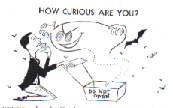Four Mile Run: Reviving an Urban Stream
by Jeff Bagato

But more than that, the project gave Fowler a reason to return to his boyhood home in Falls Church City, VA, for only the second time since 1946. Growing up here along Four Mile Run, he says, he learned many skills he later used in his professional life--like bull bluffing and catching bullfrogs: �When I was probably 10 years old, I used to take a bamboo pole and put a red piece of cloth on the end of it to catch frogs. Bullfrogs would jump and grab the color red. Later on, when I was with the Indians down in the Amazon, they had a similar system, but they�d never seen taking a red cloth and catching things that way.�?
Although the surroundings have changed dramatically, Fowler�s �old homestead�? itself--a folksy white farmhouse, almost a bungalow, with a yard bordered by low walls made of stacked slate slabs--stands much as he left it. �It�s sort of spooky how similar it is,�?Fowler remarks. Today, it�s part of a neighborhood that surrounds Arlington�s Benjamin Banneker Park and Falls Church�s Isaac Crossman Park. Four Mile Run meanders gently through these adjacent parks on its way to join the Potomac River at Reagan National.
�Whenever I�d go to National Airport, I noticed that Four Mile Run came right there to that little lagoon,�?Fowler remembers. �Even though I didn�t go to Falls Church that often, I could see that it was more or less disapearing. I really tried to keep in touch with Four Mile Run all those years.�?
But in Eckert�s feature-length video, all that is a flash in the stream�s history. As NPR�s Frank Stasio narrates, Four Mile Run started millenia ago when geological upheavals raised the ridge of rock that is now Tyson�s Corner and Minor Hill to form its headwaters, and cut a deep fracture running at right angles to form its basin. Eventually, the area became home to buffalo, bear, wolves, cougar and beaver; then to various native tribes; then to the European settlers who gradually dominated the stream with railroads, bridges, and roads.
And that�s just part one. Eckert divided the film, which he wrote, produced and directed, into four separate segments to be more easily presented on cable TV, at conferences, and at public meetings. The other parts cover the stream�s changes, �current-day hidden treasures,�?pollution problems, and the political agenda to help it. For Eckert, the film�s epic sweep is just a part of his eleven-year effort to revive Four Mile Run.
In 1998, Eckert left behind a salaried job working for the employee health program of the Red Cross, and jumped full-time into community activism in Falls Church City. But he�s been notorious in the city for bringing his environmental and social views to fruition for much longer. In 1990, he founded the City Streams Task Force from within the Village Preservation and Improvement Society, which a year later kicked off the Urban Forest Stream Valley Demonstration Project in Crossman Park.
First, the City Streams Task Force �identified all tributaries that ran into the stream there, because they�d never been identified before,�? Eckert says. The group then tried to fight development projects along the stream in both Falls Church and Arlington. �We lost every battle, mind you,�?Eckert says, clearly relishing this start of his hometown reputation for having �a few rough edges.�?The task force �wasn�t able to stop development even with the laws [against it], because laws were broken. That lead me to want to make this film.�?nbsp;
Two years ago, Eckert had produced the film, �Making of a Monument: The Tinner Hill Arch,�?to commemorate the site of the first rural chapter of the NAACP in the traditionally Black neighborhood along Tinner Hill Road where it intersects Lee Highway in Falls Church. Eckert was a major catalyst in uncovering this history and preserving it through the Tinner Hill Heritage Foundation (of which he is vice president) and the annual Tinner Hill Festival. Eckert remarks that the film project �convinced me that film is a great media for influencing people.�?He further honed his skills in video production through his two-year-old cable access program, �Going to the Village,�?aired on Falls Church Cable Channel 12, which focuses on �six different elements of what makes a community.�?nbsp;
A tireless city booster, Eckert would rather talk about the 28 authorities--naturalists, geologists, plant experts, residents, and politicians--he gathered to tell the stream�s story and his experiences reaquainting Fowler with old high school buddies in town.
Fowler, on the other hand, would rather talk about the global impact
of Eckert�s local efforts: �The quicker we humans learn that saving open
space and wildlife is critical to our welfare and quality of life, maybe
we�ll start thinking of doing something about it. That film really has
the potential to bring it more home locally why it is important.�?
See a 6-minute version of �Four Mile Run: Reviving an Urban Stream.�?nbsp;
Read the interview with Jim Fowler.
[A slightly different version of this article appeared in The
Washington City Paper, October 24, 2001.]





